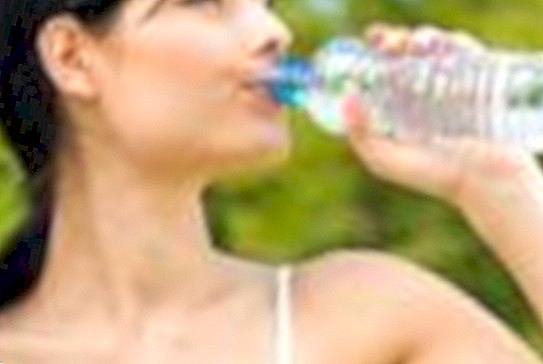Which water can we drink?

Now he finally comes, the summer - and with him also the thirst. Because when we start to sweat at high temperatures, we have to supply the body with enough liquid again. Experts from the German Nutrition Society recommend 1.5 to 2 liters of water per day. But water is not equal to water.
Mineral water
Ökotest (issue 7/2009) has a negative opinion about some mineral waters. Affected are the overall verdict "poor" Bissinger Auerquelle Gentle, Merkur Medium, Minell Medium, Teutonia Source Medium and "insufficient" Kellerwald Medium, Rewe Aqua Mia Medium, Steinsieker Silent Source, Überkinger Medium, Waldecker Medium.
Among other things one found increased amounts of heavy metals lead, uranium. And the limits of arsenic, manganese, boron and barium were also partially exceeded. All of these substances are toxic in high concentrations. Should we leave the bottled water on the shelf when shopping?
It is not quite as dramatic as this: even if dangerous substances have been found, this does not automatically mean that the quantities are sufficient to endanger our health. The measured uranium values, for example, some experts regard as harmless.
Some manufacturers have also announced that they will remove the substances of concern from their products. Incidentally, most of the tested mineral waters were unloaded and received by Ökotest a "very good".
tap water
Just turn on the tap to quench your thirst? What you should do in some holiday countries under no circumstances, is usually no problem for us: In Germany, tap water is subject to strict controls, by the way stricter than mineral water, and is overall of high quality. So we can actually drink it just as safely as packaged water from the supermarket.
However, some house lines are still made of lead, so that even originally clean drinking water loaded in our apartment arrives. Affected are old buildings, in some buildings, the toxic material was still used until 1970. Most waterworks offer one Test for lead and other contaminants from the lines such as copper on, for pregnant women or households with babies, this is partly free.
In general, experts recommend letting the so-called stagnant water run off before drinking. After all, water that has been in the pipes overnight or even longer such as holidays could be more heavily polluted. Three to five minutes are considered sufficient, in higher floors rather a bit longer.
Beware in public buildings! A test of the ARD magazine plusminus found bacteria and other pathogens in water samples from schools, hospitals and public toilet facilities. These can be attributed, for example, to contaminated taps.










